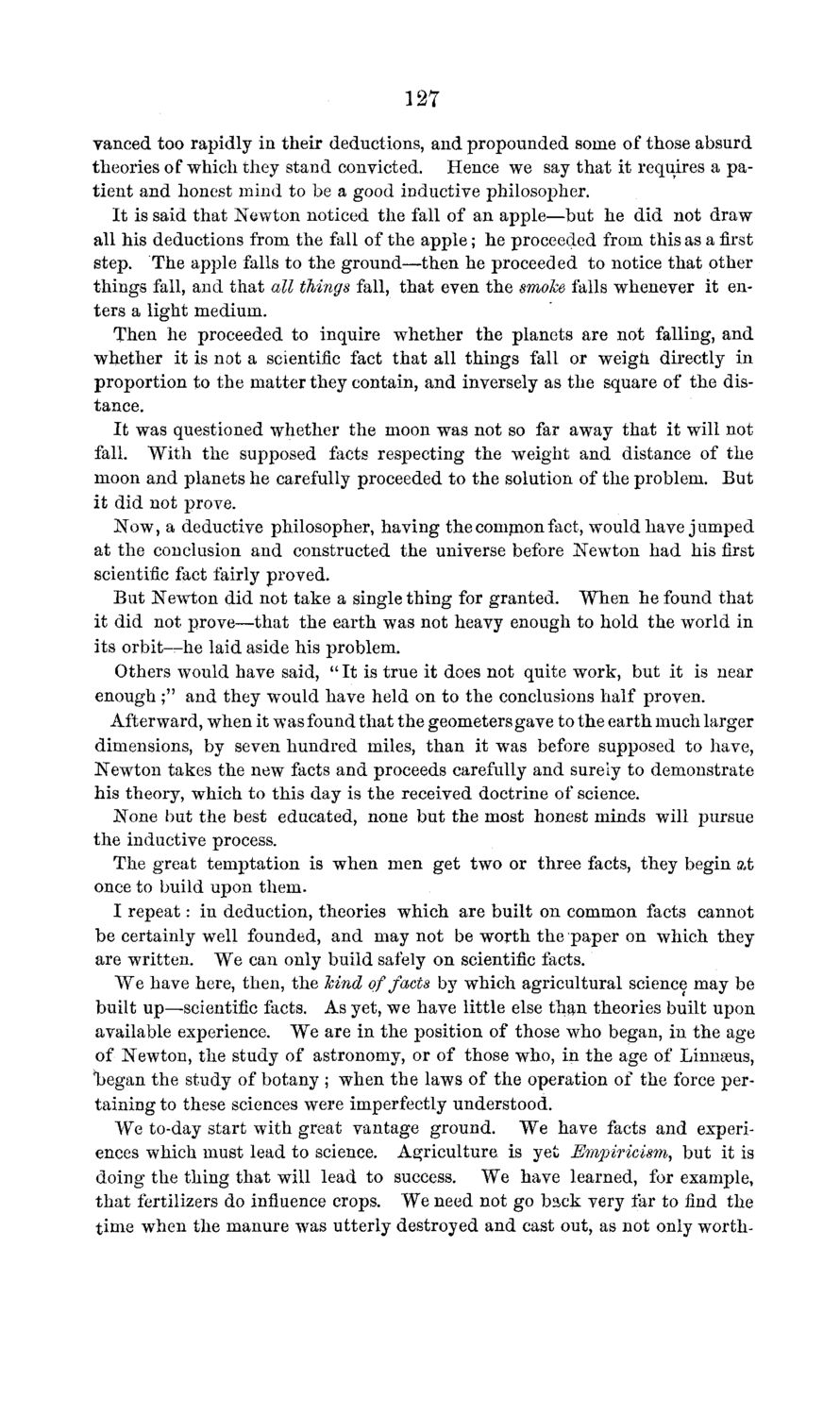| |
| |
Caption: Board of Trustees Minutes - 1869
This is a reduced-resolution page image for fast online browsing.

EXTRACTED TEXT FROM PAGE:
127 vanced too rapidly in their deductions, and propounded some of those absurd theories of which they stand convicted. Hence we say that it requires a patient and honest mind to be a good inductive philosopher. It is said that Newton noticed the fall of an apple—but he did not draw all his deductions from the fall of the a p p l e ; he proceeded from this as a first step. The apple falls to the ground—then he proceeded to notice that other things fall, and that all things fall, that even the smoke falls whenever it enters a light medium. Then he proceeded to inquire whether the planets are not falling, and whether it is not a scientific fact that all things fall or weigh directly in proportion to the matter they contain, and inversely as the square of the distance. I t was questioned whether the moon was not so far away that it will not fall. W i t h the supposed facts respecting the weight and distance of the moon and planets he carefully proceeded to the solution of the problem. But it did not prove. Now, a deductive philosopher, having the common fact, would have jumped at the conclusion and constructed the universe before Newton had his first scientific fact fairly proved. But Newton did not take a single thing for granted. When he found that it did not prove—that the earth was not heavy enough to hold the world in its orbit—he laid aside his problem. Others would have said, " It is true it does not quite work, but it is near enough ;" and they would have held on to the conclusions half proven. Afterward, when it was found that the geometers gave to the earth much larger dimensions, by seven hundred miles, than it was before supposed to have, Newton takes the new facts and proceeds carefully and surely to demonstrate his theory, which to this day is the received doctrine of science. None but the best educated, none but the most honest minds will pursue the inductive process. The great temptation is when men get two or three facts, they begin at once to build upon them. I r e p e a t : in deduction, theories which are built on common facts cannot be certainly well founded, and may not be worth the paper on which they are written. We can only build safely on scientific facts. W e have here, then, the Jcind of fads by which agricultural science may be built up—scientific facts. As yet, we have little else than theories built upon available experience. We are in the position of those who began, in the age of Newton, the study of astronomy, or of those who, in the age of Linnaeus, *began the study of botany ; when t h e laws of the operation of the force pertaining to these sciences were imperfectly understood. We to-day start with great vantage ground. W e have facts and experiences which must lead to science. Agriculture is yet Empiricism, but it is doing the thing that will lead to success. We have learned, for example, t h a t fertilizers do influence crops. We need not go back very tar to find the time when the manure was utterly destroyed and cast out, as not only wTorth-
| |